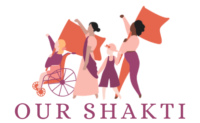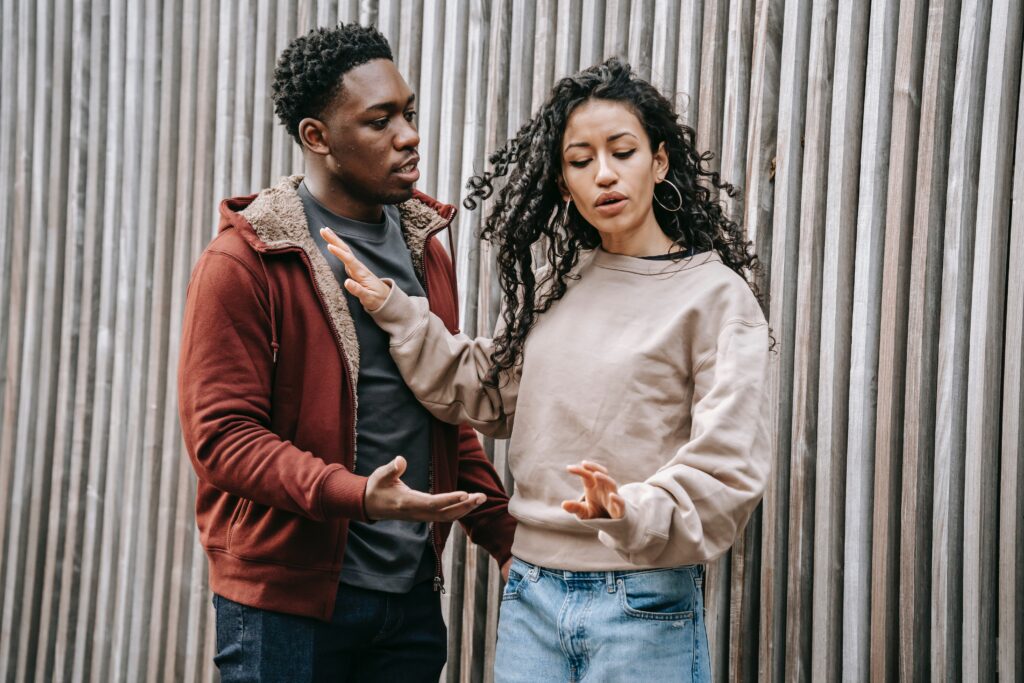Imagine yourself walking through a field of countless flowers. All are unique in their shape, texture, and colour. You reach out to pick a beautiful promising bloom and as you try to pluck it you get injured by its sharp texture. The pain of that injury keeps lingering. You have just experienced the sting of rejection. Whether you are dumped by a new love interest or friend, you fail to land a job, you are not invited to a birthday party, or you are passed up for promotion, rejection hurts.
That surprising turn down and brush-off feel like an attack and upsets you to say the least. Rejection is enough to make you never want to put yourself out there again. Yet, you must, or you will never find people or opportunities that not only want everything you have to offer but also cherish you for being you.
What does science tell us about rejection?
As researchers examined the roots of social rejection, they found surprising evidence that the pain of exclusion is not much different from physical pain (Eisenberger & Lieberman, 2004). The same areas in the brain are activated when you get hurt physically or socially. Events such as relationship breakups, social snubs, and the loss of someone through death are often described as painful and negative events in someone’s life. People use the words ‘broken heart’, ‘hurt feelings’, or ‘emotional scars’ to capture their emotional responses to such events. But why is social rejection painful?
Evolutionary psychologists believe that this goes back to the time when humans were hunters and gatherers living in tribes. Humans relied on social relationships for survival. Physical pain is perceived to be a signal which captures attention and alerts us to potential or actual damage to the physical body. (Panksepp, 1998).
“Early on, mammalian infants are almost completely dependent on caregivers for nourishment and protection. Later on, connections to others (in the social group) continue to aid survival through shared responsibilities for protection, food acquisition, and care of offspring.”
(Eisenberger, 2015: 602)
The end of a social relationship is thus threatening one’s physical safety. Although with today’s modern accessibilities, a person can physically survive a solitary existence, thanks to evolution we still search for connections and feel hurt when getting rejected.
It bloody hurts
Researchers have found that being on the receiving end of social rejection has cognitive and emotional consequences (Zimmer- Gembeck et al.,2016; Murray et al., 2002). Rejection increases anxiety, anger, depression, jealousy, guilt, shame, and sadness. It can reduce performance especially if the assignment requires intellectual and mental focus. Some people even turn aggressive or resentful after being rejected. Others start to question their self-worth.
Thanks to online communication, social media platforms, and dating apps, people use brutal ways to make it clear that you are not wanted or no longer welcomed. Getting ghosted or blocked are common ways to get the message across. Some people prefer this disrespectful phenomenon over just simply stating that they are no longer interested. It almost always takes longer to heal when you are cut out of someone’s life in a brutal way because you cannot ask questions or get an indication of what went wrong.
It is difficult to find situations in which rejection does not hurt. No one likes the idea that our presence is not wanted or no longer welcomed. Therefore, we always end up feeling hurt. However, it differs per person how long one takes to heal and how one deals with the recovery.
Why do people reject others?
One thing that we should realize is that rejection is not personal. It only seems like that because it is our natural response to look at it in that way. When people feel uncomfortable or when their needs are unmet, their instinct is to remove themselves from the situation to avoid irritation or getting hurt.
People look for different things in a relationship and this also comes with expectations. I am the type of person who cannot stand superficial conversations for too long. There are other people who want superficial relationships. That’s fine, it is just not for me. If you approach me thinking that I am fine with only superficial contact, I’ll give you hints that I want a deeper connection. There is a possibility that one of the two is going to reject the other for not meeting expectations. Other times rejection can be caused by an incompatibility of values, beliefs, or personality types between people.
Rejection is complex and influenced by multiple things. Things that we are sometimes unconscious of. That’s why it is good to reflect on what happened to find out whether it was your own behaviour that caused people to move away, whether it was completely on them, or on neither of you.
I got rejected, now what?
Unfortunately, the greatest damage is mostly self-inflicted. This happens when you allow emotions to linger and completely take over your mental well-being. Our natural response to rejection is to criticize and question ourselves.
Am I not good enough? Am I not pretty enough? Am I too outspoken? Should I have tried harder? What does that other person/candidate have what I don’t have?
And this, my dear, is exactly what you should not do after getting rejected. When someone else cannot see our value. There is no need to affirm their perception of us by dragging ourselves down. Now that we know that this isn’t the way to manage rejection, what is?
The good news is that there are healthy ways of handling rejection. Here are some of them:
Social rejection
- Allow yourself to feel it all. The sadness, hurt, anger, anxiety, and disappointment. As mentioned before, we all get hurt by rejection. There is no need to deny it or to tell others that it didn’t affect you. Just sit down and allow yourself to feel.
- Create a list of your strengths. Understand that building self-esteem is a journey, and it begins with identifying your gifts. I really recommend doing this, because when you get rejected again your list is ready. Read this whenever you feel down. Ask family and friends what makes you special. They will often mention things that you would not say about yourself. For example, my friends say that I am loyal, sincere, kind-hearted, and intelligent. Sometimes also sharp-tongued but mostly in situations when it’s necessary, such as when someone is crossing my boundaries. You are not everyone’s cuppa chai (cup of tea) and that is fine. You just need to find the right people who appreciate you in a way that you deserve. And they are out there!
- Analyse what makes you feel sad about the situation. What were your expectations of this person? Have you experienced similar situations in the past? Did you recover from those experiences? Question whether the rejection was as personal as it feels. Sometimes people reject others because they are wounded from previous traumas. Or they have a negative outlook on the world which makes your actions negative in their eyes. You don’t have influence over how your actions are perceived by the other.
- Examine your role. Not to drag yourself down, but in a way that you are better equipped to deal with similar situations in the future. Self-insight is key to becoming better at communicating your needs and explaining yourself.
- Focus on the things that you have learned from the situation. I have learned so much from previous experiences: who I am, what I search for in relationships, what I like/dislike, what can I offer/receive, what my dealbreakers are (LIES!), and how to recognize whether someone respects me or not.
- The last step of the process is to forgive. It can take a long time before you reach this stage. People often misunderstand the concept of ‘forgiveness’. It does not mean that how someone treated you was okay. You accept that it has happened to you, and you don’t let that hold you, hostage, any longer by being resentful about it. Forgiveness is for you. Not for someone else. We can’t change events. We can only change what we think about them. I find that this step prevents you from staying resentful and it is the only step that can set you free other than receiving an apology. But in some cases, you will never receive an apology. Use rejection as an opportunity to move forward as a wiser and stronger person ever before.
Job rejection
Dealing with job rejection is my opinion slightly different from other types of rejections because you have to continue applying for jobs until you have found one. You cannot distance yourself from the situation and it can feel very personal. Sometimes I questioned whether I was rejected because I am a woman or a woman of colour. It cannot become more personal than that because that is something that I cannot change. I have also heard many stories of women who chose to take care of their children after giving birth for a year or longer. After re-entering the labour market, it took them a long time before finding a job. The only thing that you can do is: keep going!
- After each job rejection, you always have the opportunity to improve your cover letter, resume, and the way you answered questions in a job interview. One thing that has helped me a lot, is asking other people whether they can check my cover letter, resume, or the way I answered questions.
- Plan breaks. Jobhunting can cause stress or fatigue. It will do you good to distance yourself from the process.
- Be gentle with yourself. It is important that you keep giving yourself credit for trying after each job rejection.
- Create a list of your talents and skills and keep telling yourself those talents are good enough. The right employer will value those skills and give you the opportunity to work on the skills that you need to develop.
- Don’t allow their feedback to hit your self-esteem. I have found that sometimes their feedback is useful, but other times it is not. Or they could not even give me a proper reason. Only accept feedback that is useful. Also, be realistic. The system might allow for judging people based on a cover letter, resume, or job interview. But can they really see all that you have to offer just by looking at that? Do you think that they always hire the best candidate? Or do they sometimes make mistakes?
- And never forget that a job interview is an equal conversation. You have got something to offer and you need them. They have got something to offer and need you.
- Accept that rejection is part of the job hunting game. You have to go through many no’s before getting to your one yes. But it will happen one day! Have faith.
Go out and find people or opportunities that want everything you have to offer and cherish you for being you!
Picture credits: Keira Burton via Pexels
References
Eisenberger, N. I. (2015). Social pain and the brain: controversies, questions, and where to go from here. Annual review of psychology, 66, 601-629.
Eisenberger, N. I., & Lieberman, M. D. (2004). Why rejection hurts: a common neural alarm system for physical and social pain. Trends in cognitive sciences, 8(7), 294-300.
Murray, S. L., Rose, P., Bellavia, G. M., Holmes, J. G., & Kusche, A. G. (2002). When rejection stings: how self-esteem constrains relationship-enhancement processes. Journal of personality and social psychology, 83(3), 556.
Zimmer-Gembeck, M. J., Nesdale, D., Webb, H. J., Khatibi, M., & Downey, G. (2016). A longitudinal rejection sensitivity model of depression and aggression: Unique roles of anxiety, anger, blame, withdrawal and retribution. Journal of abnormal child psychology, 44(7), 1291-1307.

